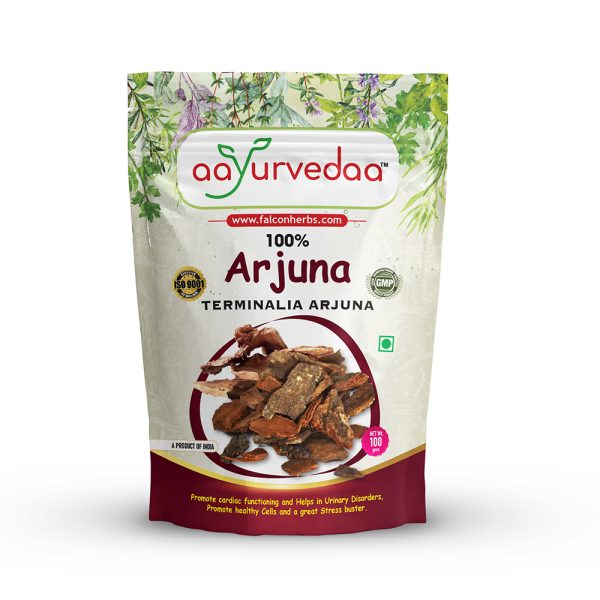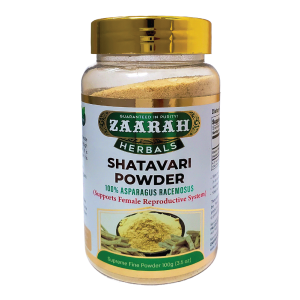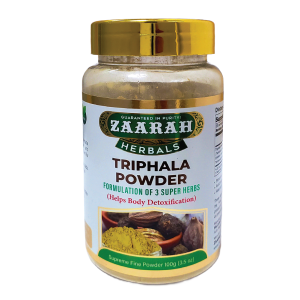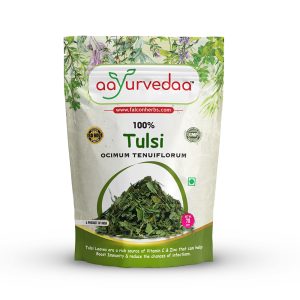No products in the cart.
Unlocking Top 7 Benefits of Ayurvedic Arjuna Bark for Heart Muscle Support

Ayurvedic Arjuna bark, scientifically known as Terminalia arjuna, is a natural remedy derived from the bark of the Arjuna tree. This tree has been a staple in traditional Ayurvedic medicine for its various health benefits, particularly in supporting cardiovascular health. The bark of the Arjuna tree contains a plethora of bioactive compounds, including flavonoids, tannins, triterpenoid saponins, and minerals, all of which contribute to its medicinal properties.
1. Introduction to Ayurvedic Arjuna Bark
A. Origin and History
Ayurvedic Arjuna Bark, derived from the Terminalia arjuna tree native to the Indian subcontinent, has a rich history in traditional medicine. It finds its roots in ancient Ayurvedic texts, where it is revered for its cardiovascular benefits.
B. Traditional Uses
In Ayurveda, Arjuna Bark has been used for centuries to support heart health and promote longevity. It was traditionally brewed into a tea or decoction and consumed for its medicinal properties.
C. Modern Applications
With the advancement of modern science, the therapeutic potential of Arjuna Bark has gained recognition worldwide. Today, it is available in various forms such as capsules, extracts, and powders, making it accessible to a broader audience seeking natural alternatives for heart health.
2. Understanding Heart Health
A. Importance of Heart Health
The heart is a vital organ responsible for pumping oxygen-rich blood throughout the body, sustaining life. Maintaining optimal heart health is crucial for overall well-being and longevity.
B. Common Heart Conditions
Heart conditions like hypertension, coronary artery disease, and arrhythmias are prevalent in today’s society, posing significant health risks. Lifestyle factors, genetics, and environmental influences contribute to the development of these conditions.
C. Role of Nutrition in Heart Health
Nutrition plays a pivotal role in heart health, with certain foods and supplements exerting beneficial effects on cardiovascular function.
D. Ayurvedic Approach to Heart Health
Ayurveda emphasizes a holistic approach to heart health, focusing on balancing the body’s doshas (bioenergies) and promoting harmony between mind, body, and spirit. Herbs like Arjuna Bark are integral to Ayurvedic formulations aimed at supporting cardiovascular function naturally.
3. Arjuna Bark: Nature’s Gift to Heart Health
A. Botanical Overview
Terminalia arjuna, also known as Arjuna Tree, belongs to the Combretaceae family and is indigenous to India. The bark of this tree is the primary source of therapeutic compounds used in Ayurvedic medicine.
B. Active Constituents
Arjuna Bark contains an array of bioactive compounds, including flavonoids, tannins, saponins, and glycosides. These phytochemicals exhibit antioxidant, anti-inflammatory, and cardioprotective properties.
C. Pharmacological Properties
Studies have elucidated the pharmacological actions of Arjuna Bark, showcasing its ability to strengthen cardiac muscles, improve coronary circulation, and regulate blood pressure. Additionally, it demonstrates anti-atherosclerotic and lipid-lowering effects.
D. Forms of Arjuna Bark Supplements
Arjuna Bark supplements are available in various forms, such as standardized extracts, capsules, and powders. Standardization ensures consistent potency and efficacy, making it easier for consumers to incorporate into their daily wellness routine.

4. Benefits of Arjuna Bark for Heart Muscle Support
1. Enhances Cardiac Function
Arjuna Bark enhances cardiac function by strengthening the heart muscles and improving contractility. It aids in the efficient pumping of blood, thereby optimizing cardiovascular performance.
2. Supports Healthy Blood Pressure
The hypotensive effects of Arjuna Bark help maintain healthy blood pressure levels by dilating blood vessels and reducing peripheral resistance. This contributes to overall cardiovascular wellness and reduces the risk of hypertension-related complications.
3. Anti-Arrhythmic Effects
Arjuna Bark exhibits anti-arrhythmic properties, helping to regulate heart rhythm and prevent irregular heartbeat patterns. By stabilizing electrical impulses within the heart, it promotes normal cardiac conduction and reduces the risk of arrhythmias.
4. Reduces Cholesterol Levels
Studies have shown that Arjuna Bark can effectively lower cholesterol levels, particularly LDL (bad) cholesterol, while simultaneously increasing HDL (good) cholesterol levels. This lipid-modulating effect contributes to the prevention of atherosclerosis and coronary artery disease.
5. Benefits for Heart Health
5. Supports Healthy Blood Pressure:
Arjuna bark is renowned for its ability to promote healthy blood pressure levels. Studies suggest that the bioactive compounds present in Arjuna bark help dilate blood vessels, thereby reducing resistance to blood flow and supporting optimal blood pressure.
6. Maintains Healthy Cholesterol Levels:
High cholesterol levels are a significant risk factor for heart disease. Arjuna bark has been found to exhibit lipid-lowering effects, aiding in the reduction of LDL (bad) cholesterol levels while promoting the increase of HDL (good) cholesterol levels, thus supporting overall heart health.
7. Enhances Cardiac Function:
The cardioprotective properties of Arjuna bark are well-documented. It helps strengthen the heart muscles, improve cardiac function, and enhance overall cardiovascular performance. Additionally, Arjuna bark is known to have antioxidant properties, which help protect the heart from oxidative stress and damage.
Incorporating Arjuna Bark into Your Wellness Routine
Arjuna bark supplements are widely available in various forms, including capsules, powders, and extracts. When considering incorporating Arjuna bark into your wellness routine, it’s essential to consult with a healthcare professional, especially if you have existing heart conditions or are taking medications.

Promoting Heart Health: The Power of Arjuna Bark
In the quest for optimal heart health, nature often provides remarkable solutions. One such solution that has gained attention in recent years is Arjuna bark. Derived from the Terminalia arjuna tree native to the Indian subcontinent, Arjuna bark has been revered in traditional Ayurvedic medicine for centuries. Let’s delve deeper into the potent properties of Arjuna bark and how it can contribute to promoting a healthy heart.
FAQs
1. Can Arjuna bark be used as a standalone treatment for heart conditions?
While Arjuna bark shows promise in promoting heart health, it’s essential to approach it as a complementary addition to conventional treatments. Consultation with a healthcare provider is advised for personalized guidance.
2. Are there any side effects associated with Arjuna bark?
In general, Arjuna bark is considered safe for most people when consumed in recommended doses. However, some individuals may experience mild side effects such as digestive discomfort. It’s crucial to follow dosage instructions and seek medical advice if any adverse reactions occur.
3. How long does it take to experience the benefits of Arjuna bark?
The timeline for experiencing the benefits of Arjuna bark may vary from person to person. Consistent use over several weeks or months may be necessary to observe noticeable improvements in heart health parameters.
4. Can Arjuna bark interact with medications?
Arjuna bark may interact with certain medications, particularly those prescribed for heart conditions or blood pressure management. It’s essential to inform your healthcare provider about any supplements you’re taking to avoid potential interactions.
5. Is Arjuna bark suitable for everyone?
While Arjuna bark is generally well-tolerated, it may not be suitable for individuals with specific health conditions or those who are pregnant or breastfeeding. It’s best to consult with a healthcare professional before starting any new supplement regimen.
Arjuna Bark – 100gms – Promotes Cardiac functioning and helps in Urinary Disorders, strengthen the heart muscles as well as reduces blood pressure
₹216.00
Type: Ayurvedic MFG: Jun 4, 2023 LIFE: 36 months













